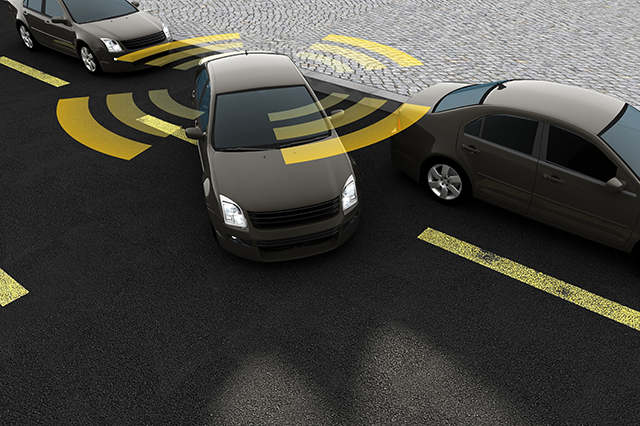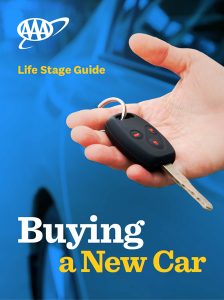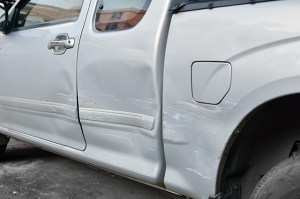At times, it may seem like you can’t keep up with the rapid pace of technology changes. Some advances have staying power, and others won’t stay around long enough to have much impact. Since new technology can impact the way you drive, it also can affect your car insurance. Here are some advances with which you should become familiar.

New Technology That Could Change Car Insurance
Self-Driving Cars
As you read this, engineers are at work honing the self-driving car. Far from a futuristic concept, driverless vehicles likely will make their way to the road in the next few years. Something you might not think about is the number of assisted-driver technologies on which we already rely. Rear-view cameras, cruise control, self-parking systems and other features help you to drive more economically and safely. At one time they were new technology, but now they are part of a more intuitive experience for many drivers.
The challenge of developing a driverless car is ensuring that it can navigate the hazards we encounter everyday such as traffic circles, oncoming cars, congested streets and pedestrian traffic. With advances in machine learning, computers are now able to learn without being expressly programmed to respond, which is essential as driverless cars will encounter situations they may not have been exposed to during simulation or testing. The intricate process of developing the computers that underlie driverless cars involves exposing it to massive amounts of data, simulation, and testing, and then ensuring it can respond in a dynamic environment.
One of the goals of driverless cars is to make the road safer. With the element of human distraction and decision-making out of the way, some anticipate an overall decrease in accidents in the long term. So can you skip car insurance altogether if you buy a driverless car? The short answer is no. While some say the road will become safer, there is no real-world data that points to this yet.
Driverless vehicles are ranked on a scale of 0 to 5 according to the level of human intervention required during operation and monitoring. Think about your rear-view camera. It can show you what is located behind your car, but it can’t prevent you from backing right into a shopping cart. Even if the road is full of self-driving cars, they may not all fall under the same level of automation.
With accidents still a distinct possibility, drivers will need liability insurance in accordance with their state laws. They also will need collision in case of damage to their own vehicle. And what about comprehensive coverage? Self-driving cars can be vandalized, stolen or damaged by natural causes in the same way that your current vehicle can be.
Still, the insurance industry will need to adjust to the changing road, and this could impact you and your future policies. As with all new technology, the implications may be unpredictable.
Biometrics Will Bring New Technology Features To Your Car
If you ever used a fingerprint scan to access your smartphone, you have relied on biometric data. Broadly, biometrics refers to the data about your human characteristics and includes things like face recognition and retina detection. For many years, it has been used for security purposes, but it also has applications in your vehicle.
Unlocking your car with a fingerprint is a simple application of biometrics, and it can help guard against auto-theft. Since insurers often decrease your rate if your vehicle has safety and anti-theft features, this may result in decreased rates. Insurance is based on assigned risk, and any step you can take to protect your vehicle decreases the likelihood it will be stolen.
If your car is equipped with biometric features, your vehicle itself may adjust once you enter. If you share a car with someone else in your household, this is particularly useful. Preferences such as seat location and dashboard display can be set for each driver.
Beyond identification, biometrics can be used to monitor drivers, which is another aspect that may affect your insurance. Cars are being developed that can detect your heart rate, breathing and movement patterns, which can indicate when you are too drowsy to drive. Traditionally vehicles that detect drowsiness rely on information about the car’s own movements such as lane deviation to indicate a driver may be too tired to operate it safely.
With features becoming more advanced, insurance companies may give discounts for safety features based on biometric data. They also may find new ways to assign greater risk based on how often you are drowsy or otherwise too impaired to drive.
While the pace of technological change is fast, it is important to keep up with trends that affect the way you interact with your vehicle. In addition to changing life on the road, you can expect that new technology will have an impact on your car insurance.
Are you excited for self-driving cars or do you want to keep control of the wheel? Do you worry that biometrics could be used to charge you more money for insurance? Let us know in the comments section.
To learn more about car insurance in the present day, visit AAA.com/Insurance.
2 Thoughts on “New Technology That Could Change Car Insurance”
Leave A Comment
Comments are subject to moderation and may or may not be published at the editor’s discretion. Only comments that are relevant to the article and add value to the Your AAA community will be considered. Comments may be edited for clarity and length.











We don’t know much about them yet, but I feel very uneasy regarding driverless vehicles.
I’d be afraid of being kidnapped by the car and whoever is ultimately in control. No thanks!